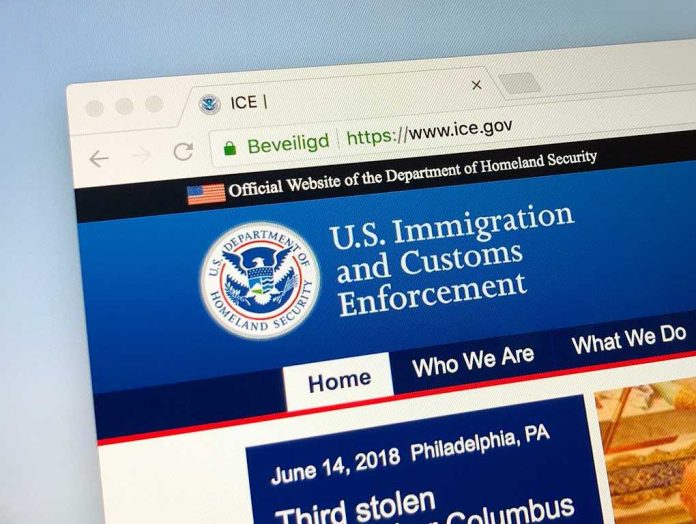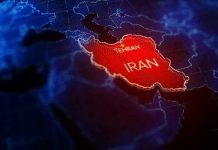
ICE’s latest crackdown in Chicago exposes the deadly risks of sanctuary city policies and the ongoing clash between federal law enforcement and left-leaning local officials.
Story Snapshot
- ICE arrested at least 13 undocumented immigrants with violent criminal records in Chicago after the killing of a local woman by an illegal immigrant.
- Operation Midway Blitz specifically targeted individuals charged with crimes like sexual assault, rape, and armed robbery.
- Federal action has reignited tensions with Chicago’s sanctuary city leaders, who oppose cooperation with ICE.
- Community protests and legal challenges are underway, highlighting a deep divide over public safety and immigration enforcement.
Federal Operation Targets Violent Offenders After Tragedy
U.S. Immigration and Customs Enforcement, in coordination with the Department of Homeland Security and other agencies, launched Operation Midway Blitz in Chicago. This operation targeted undocumented immigrants with histories of violent crime, including sexual assault, rape, armed robbery, and domestic battery. The initiative follows the tragic death of Katie Abraham, a Chicago woman killed in a drunk driving incident by an undocumented immigrant earlier this year. Federal officials framed the action as a necessary response to protect public safety and prevent further tragedies.
As part of the initial sweep, at least 13 individuals were arrested in Chicago’s Lawndale neighborhood by September 9. Federal authorities emphasized that these arrests focused on “the worst of the worst,” aiming to remove dangerous criminals from the community. The operation’s name honors Katie Abraham and underscores a clear message from the Trump administration: violent offenders who violate immigration laws will be targeted, regardless of local sanctuary policies. The ATF also played a role, investigating related gang and firearms offenses, indicating a broader federal commitment to dismantling criminal networks tied to illegal immigration.
Sanctuary City Policies Under Fire Amidst New Wave of Enforcement
Chicago’s status as a sanctuary city has long limited cooperation between local law enforcement and ICE, creating a persistent source of conflict with federal authorities. Both Mayor Brandon Johnson and Illinois Governor JB Pritzker criticized the operation, citing a lack of coordination and increased fear in immigrant communities. Local and state leaders argue that such enforcement actions disrupt community trust and public safety, warning of a chilling effect on cooperation with police. Nevertheless, federal officials maintain that sanctuary policies prevent the lawful removal of violent offenders, posing unacceptable risks to law-abiding citizens.
The operation quickly drew organized protests from community and immigrant rights groups, who began holding “Know Your Rights” briefings and advising residents to avoid public events if concerned about enforcement. These activist organizations have a history of mobilizing rapid responses to federal immigration actions, providing legal support and rallying public opposition. Previous ICE raids in Chicago and similar cities have led to court challenges and ongoing legal battles over the limits of federal versus local authority. The current climate in Chicago reflects these entrenched divisions, with both sides steadfast in their positions.
Public Safety, Political Fallout, and the Battle Over American Values
Federal agencies argue that targeted enforcement is essential to maintaining public safety and upholding the rule of law, especially in the wake of high-profile crimes committed by undocumented immigrants. For many Chicagoans—particularly those who support stronger borders—these actions represent a necessary correction to years of lax policies and a defense of basic community safety. On the other hand, city officials and immigrant advocates insist that such operations erode trust, disrupt families, and have broader social and economic impacts in mixed-status neighborhoods.
ICE Arrests Pedophiles, Rapists, Abusers in Chicago Sanctuary City Crackdown Operation | BOOYA👏👏👏 https://t.co/pCVjCjG8wl
— Rory🏇🏇🏇 (@Rory33005952889) September 11, 2025
Short-term effects include heightened anxiety and disruption within immigrant communities, while the long-term consequences may involve decreased cooperation with law enforcement and continued legal battles over sanctuary policies. The operation has intensified the national debate over the balance between federal enforcement and local autonomy. Legal experts and scholars note that while removing violent offenders is widely supported, large-scale enforcement in sanctuary cities often leads to wider community disruption and does not always correlate with lower crime rates. The legacy of Operation Midway Blitz will likely be measured both by its immediate results and its impact on the ongoing struggle over America’s immigration future.









